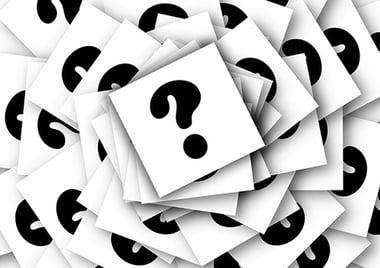
If you struggle with the ACT Reading section, you're probably on the lookout for some new strategies to help you improve your performance. In this article, I’ve put together four of our top strategies for fixing whatever problems you have on the Reading section and dramatically increasing your scores!
Strategy #1: Learn to Eliminate Three Wrong Answers
This is the cornerstone of the fundamental rule of ACT reading, which states that there is only one correct answer for each question, and all other choices can be eliminated based on concrete evidence in the passage. This sounds simple, but it’s much more difficult in practice. You have to be super picky with every answer choice!
If an answer choice contains even one word or phrase that doesn’t match up with the evidence in the passage, you must eliminate it. Don’t fall for answers that COULD work but don’t have any direct evidence to back them up. That’s how the test tries to trick you. A good way to avoid tricky answers is to answer the question in your own words first and then look at the answer choices. This way, you can formulate an opinion before your thoughts are influenced in any way by the incorrect options.
This is an important strategy because it’s much easier to get rid of three wrong answers than to try and pick out one correct answer right off the bat. Even if you’re not sure exactly what the right answer is, with this strategy you can find it just by figuring out what the wrong ones are.
Practice Question for Strategy #1:
In the last paragraph, the author expresses the belief that scientists who open a new line of research on a topic are likely to:
A. quickly discover the answers to the questions they raise.
B. find that new questions arise as old ones are answered.
C. receive answers far different than they anticipated.
D. learn that they have often asked the wrong questions.
Here’s the last paragraph of the passage for reference:
Like many preliminary scientific reports, Cho’s study raises more questions than it answers. Still, he has demonstrated new functional effects of acupuncture. “Classically, acupuncture was the ultimate in experimentation; people collected data for thousands of years,” says Joie Jones, professor of radiological sciences at the University of California at Irvine and coauthor of the study. “With these studies, we’ve demonstrated that for at least some acupuncture points [a connection] goes through the brain.”
Which belief is the author expressing in the paragraph? Well, first let’s decide which beliefs he or she ISN’T expressing.
Choice A: quickly discover the answers to the questions they raise
This seems wrong. The paragraph says that the study “raises more questions than it answers”. This doesn’t go along with a belief that scientists who open new lines of research like the one in the passage will “quickly discover the answers to the questions they raise”.
The study led to more questions, not immediate answers! Cross it out.
Choice C: receive answers far different than they anticipated
This looks wrong too. Did the paragraph ever talk about the study revealing unexpected answers to the scientists’ questions? It seems like it’s saying that the study demonstrated what they expected it to: that acupuncture points are connected to signal pathways in the brain.
Get rid of this answer!
Choice D: learn that they have often asked the wrong questions
This choice also seems incorrect. Although the study “raises more questions than it answers”, the paragraph doesn’t refer to the original questions being “the wrong questions.” They just didn’t cover all the questions that would ultimately come up as a result of the study.
Cross this answer out too!
The only answer we have left after eliminating the incorrect choices is:
Choice B: find that new questions arise as old ones are answered
This answer choice makes complete sense. It restates the phrase in the paragraph about new questions being raised almost word for word!
You can see from this example how process of elimination makes the answers to ACT Reading questions a lot more clear-cut. That's why it's such a key strategy to keep in mind.
 New questions will always arise as old ones are answered. We will never truly be enlightened. Humanity toils endlessly to find meaning in existence. Oh, the horror of consciousness. Didn't think a picture caption would get this dark, did you?
New questions will always arise as old ones are answered. We will never truly be enlightened. Humanity toils endlessly to find meaning in existence. Oh, the horror of consciousness. Didn't think a picture caption would get this dark, did you?
Strategy #2: Find Your Ideal Passage Reading Method
This strategy is also critical, especially if you struggle with running out of time on ACT Reading. Time can be a huge problem for students on the Reading section because you only get 35 minutes for 40 questions. That’s 53 seconds per question! If you spend a total of 15 minutes just reading the passages, that brings your time per question down to 30 seconds.
This means picking the most efficient reading method will do a lot to improve your performance. Here are three methods that you might decide to use. Experiment with each on timed practice tests to see which feels the most comfortable and allows you to save the most time.
Method #1: Skim the Passage First
This is an effective method if you want to get a sense of the overall structure of the passage before looking at the questions without wasting too much time. The best way to skim is to read the introduction and conclusion paragraphs of the passage and the first and last sentences of the body paragraphs. The author's main points will be located in these parts of the passage, so you should be able to answer any big picture questions you come across after skimming.
If a question asks about details in the passage that you don’t remember, you can always go back and find them. By doing this on a question-by-question basis, you will save yourself time because you’ll only be reading closely in the specific parts of the passage that are relevant to the questions.
Method #2: Skip Straight to the Questions
This might seem crazy, but trust me, it’s a workable strategy. Close to half of the questions on the ACT Reading section are about small details, so you don’t have to know the main idea of the passage to answer them.
You can answer these types of questions just by searching through the passage and finding one specific detail. By the time you answer all the detail questions and are ready to move on to big picture questions, you'll have a solid sense of the main points of the passage. If not, you can always use the skimming technique outlined in Method #1.
This method scares some people, but if you’re willing to go for it, it can actually save tons of time!
Method #3: Read the Whole Passage First
This is the method most people use instinctively. If you’re a fast reader with great reading comprehension skills, it might be fine to read passages this way. Just make sure that it really is working for you - again, I suggest taking timed practice tests where you experiment with these methods to see which one will serve you best on the real test. Even if you CAN read quickly, that doesn't mean you'll absorb the information effectively. Make sure you're a quick and thorough reader before deciding to abandon the other methods and read passages in-depth.
 When it comes to reading passages, don't bite off more than you can chew.
When it comes to reading passages, don't bite off more than you can chew.
Mini-Strategy #2.5: Answer Questions Based on Your Reading Strategy
I mentioned this a bit when describing the different reading methods, but on the test you should answer questions in an order that makes sense based on your chosen reading strategy. If you use Method #1 and skim the passage first or use Method #3 and read thoroughly first, then you should start with big picture questions. The main points of the passage will be freshest in your mind right after you skim the passage.
If, on the other hand, you use Method #2 and start with the questions, you should answer detail questions first. They'll be much easier to answer than big picture questions if you haven't yet read the passage in full.
Strategy #3: Understand Your Mistakes
The key to improvement in any endeavor is first understanding where you're going wrong, and the ACT Reading section is no exception. When you take practice tests, mark every question you get wrong or are unsure about, and determine why you missed each of them. This should include any questions where you guessed and got the right answer. You might not be so lucky next time!
When analyzing your mistakes, it’s not enough to say “I made a dumb mistake” and move on. WHY did you make a mistake on that particular question? What will you do to prevent it from happening again in the future?
There Are Four General Types of Mistakes:
Type 1: Time Pressure
Did you miss the question because you just didn’t get to it? Were you rushing and picked an answer that you didn’t really think about?
If time pressure is the reason for many of your mistakes, you may need to refine your passage reading strategy or just take more practice tests to get used to how fast you need to move through the questions. You might also need to work on skipping difficult questions initially so you don’t spend too much time on one question and miss easier questions later in the section.
Type 2: Content Weakness
This is less common in the Reading section, but it’s possible that you just didn’t know what a word or concept meant in the passage and ended up choosing the wrong answer. The best way to fix this is to do more challenging reading on your own time. You should also read this guide to ACT vocabulary and the most common words you’ll need to know!
Type 3: Question Comprehension
Did you misunderstand what the question was asking? These types of mistakes are why it’s so critical to make sure you know what’s being asked before you start looking at the answer choices. If you find a question confusing, restate it in your own words before choosing an answer.
Type 4: Careless Error
Did you miss an “EXCEPT” or “LEAST” in the question? Were you rushing?
Remind yourself to slow down and read carefully. Try different passage reading strategies if you think this is partially a time pressure issue. If you’re rushing because you’re anxious about finishing the section, I would suggest skipping straight to the questions. This way you will get some questions done right away and will feel less pressed for time.
Once you realize where your mistakes are happening, you can start to correct them. Confronting your mistakes directly will improve your scores significantly!
 Time to eat a nice slice of humble pie washed down with a glass of my mistake milk. Rein in your ego, and you won't get food poisoning. Probably.
Time to eat a nice slice of humble pie washed down with a glass of my mistake milk. Rein in your ego, and you won't get food poisoning. Probably.
Strategy #4: Find Your Problem Areas and Practice, Practice, Practice
This is the next step after figuring out the types of mistakes you make most frequently. After you identify all the questions you’ve been missing, you can categorize them by question type to make it easier to cater your practice sessions to the areas of the test that give you the most trouble.
ACT Reading question types that we’ve identified include:
Big picture questions
Little picture/detail questions
Vocabulary in context questions
Function questions
Inference questions
Click on the links for more information about each type and strategies for solving them. Once you’ve categorized all your problem questions, you can start doing more practice in the areas that cause you the most trouble.
If you find that your mistakes are pretty evenly distributed, you can practice all types of questions and work on taking more timed practice tests. It’s possible that it’s not the questions themselves that are a problem for you but the timing of the test. This just means getting used to the structure and learning better time management.
Review
If you really want to improve your ACT Reading scores, you’ll need work hard at perfecting your testing strategies and fixing your weak areas.
The four strategies you should keep in mind are:
Strategy #1: Learn to eliminate three wrong answer choicesStrategy #2: Find the best passage reading method for you
Strategy #3: Understand your mistakes
Strategy #4: Find your problem areas and do practice questions
If you follow this advice and devote significant time to mastering these strategies, you should start to see awesome results!
What's Next?
For more quick ways to improve your ACT Reading score, check out my article on the best tips for ACT Reading.
If you're really ambitious, read our article on how to get a perfect 36 on ACT Reading for more advanced strategies.
Ready to get your studying started? Take a look at this article on the best way to practice for ACT Reading.
Want to improve your ACT score by 4 points?
Check out our best-in-class online ACT prep program. We guarantee your money back if you don't improve your ACT score by 4 points or more.
Our program is entirely online, and it customizes what you study to your strengths and weaknesses. If you liked this Reading lesson, you'll love our program. Along with more detailed lessons, you'll get thousands of practice problems organized by individual skills so you learn most effectively. We'll also give you a step-by-step program to follow so you'll never be confused about what to study next.
Check out our 5-day free trial:
Have friends who also need help with test prep? Share this article!

Samantha is a blog content writer for PrepScholar. Her goal is to help students adopt a less stressful view of standardized testing and other academic challenges through her articles. Samantha is also passionate about art and graduated with honors from Dartmouth College as a Studio Art major in 2014. In high school, she earned a 2400 on the SAT, 5's on all seven of her AP tests, and was named a National Merit Scholar.


































 Holly R.
Holly R.